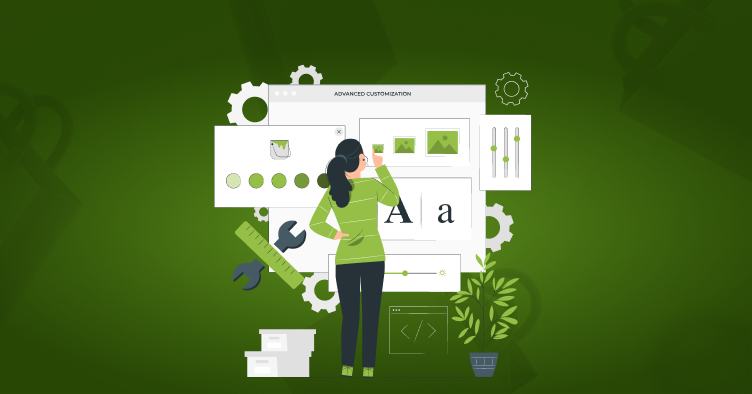Comparing Shopify Private Apps and Custom Apps: Which is Best for Your Business in 2024?
Last Updated | June 9, 2024
Table of Contents
As a Shopify merchant, choosing the right type of app to extend your store’s functionality is critical. Custom and private apps offer unique advantages, but which one best suits your business in 2024?
This blog post will comprehensively compare Shopify’s custom and private apps, analyzing their features, benefits, drawbacks, and ideal use cases. By the end, you’ll clearly understand which app type best aligns with your business goals and technical requirements. Let’s dive into the Shopify custom app vs private app comparison!
Private Shopify Apps – An Overview
As the name suggests, a private Shopify app was built for Shopify but is unavailable on the Shopify app store. A private Shopify app was often built for a specific business and not made available to the general public.
Private Shopify apps were designed to extend specific store functionality without navigating the Shopify app store approval maze. It was easier, took less time, and did the job right. However, as of January 2022, private Shopify applications are no longer available.
They were made redundant due to various security concerns related to a Shopify store’s data. Additionally, custom Shopify applications offered the same functionality but with more safety – a win-win for the business.
Custom Shopify Apps – An Overview
A custom Shopify application is a powerful tool for improving the functionality of your online business. It adds features you can’t find on the Shopify app store and is built specifically for your store and its unique needs. The most important benefits of custom Shopify apps include:
- Personalized features, e.g., custom product recommendations, loyalty programs, inventory management integration, cloud-based app integration, etc.
- Streamlined workflows with custom apps for task automation, communication, accounting, shipping, etc.
- Building a personalized customer experience using various custom features to browse products, use interactive features, and more.
- A Custom Shopify app uses the Shopify API to access your store data legitimately, helping power several functionalities and improve integration.
Custom Shopify applications are essential to the Shopify e-commerce ecosystem because they improve the experience for businesses and consumers. Shopify custom app development is a crucial aspect of running an e-commerce business, and it has various possibilities. This next section covers this in extensive detail.
Shopify Custom App Development Explained
Custom Shopify app development allows businesses to improve functionality beyond the standard Shopify experience. As powerful as the base Shopify infrastructure may be, custom Shopify applications make it even better. Here’s why your store needs custom Shopify applications:
- The unique store must address specific challenges and build workflows that a generic Shopify app struggles with (custom product recommendations, specialized fulfillment service).
- Custom Shopify apps offer more control over their features and data access to ensure they perfectly align with your store’s security requirements and business vision.
Developing a custom Shopify application requires the right experts for the job. The steps involved include:
- Identifying what problem your app will solve
- Mapping all relevant functionality
- Building an intuitive, user-friendly interface
- Integrating admin and storefront APIs for access to store data and functions
- Picking the correct development language (Ruby or JavaScript)
- Picking the proper development framework (Ruby on Rails or Node.js)
- Testing the app continuously during development to debug it
- Deploying the custom Shopify application to your Shopify admin
Developing custom Shopify applications follows this framework with tweaks here and there. You’ll need a Shopify partner account with all the right development resources and tools before beginning development on a Shopify custom application.
Custom Shopify applications require development experience; if you don’t, consider working with an experienced Shopify app developer like Folio3! Contact them at 408-365-4638 today to get started with your custom development!
The Difference Between Public Shopify Apps And Custom Apps
To understand the value of a custom Shopify application, they must be compared to public Shopify apps. Instead of a long read, we’ve taken the liberty of putting this information in the following table:
| Feature | Public Shopify Apps | Custom Apps |
| Availability | Available to all Shopify stores through the Shopify App Store | Built for a single Shopify store (not on App Store) |
| Functionality | Wide range of general features (e.g., payments, marketing, shipping) | Tailored features to address specific store needs |
| Customization | Limited customization options | Highly customizable to fit unique workflows and branding |
| Development | Developed by third-party app developers | Developed by you or a hired Shopify app developer |
| Approval Process | Needs approval from Shopify to be listed on the App Store | No approval process is required |
| Data Access | Access to store data following Shopify’s App permissions | Direct access to store data using Shopify’s APIs |
| Security | Adheres to Shopify’s security standards | Requires careful security implementation during development |
| Cost | Varied pricing models (free, freemium, subscription) | Development cost (can be ongoing for maintenance) |
| Successor to | N/A | Private Shopify Apps (discontinued in 2022) |
How can Shopify Custom Apps Help You Maximize the Customer Shopping Experience?
Think of a custom Shopify app as a turbocharger for an online business. The app helps create an engaging and seamless customer shopping experience in various ways:
Personalized Shopping Experiences
Custom Shopify applications take your store beyond basic recommendations and use customer data to offer personalized recommendations. The app will monitor the customers’ browsing and purchase history, store behavior, and preferences to deduce what products they want.
Getting personalized recommendations makes customers feel seen, heard, and acknowledged, allowing them to build a special connection with your business. A loyalty program can leverage this sentiment to further customer engagement with a custom app that tracks rewards and points and offers different incentives for repeat customers (early access, discount codes).
Improved Store Functionality
Develop a custom Shopify app with one-click and guest checkout options, pre-populated shipping information, and an effective content marketing strategy. The store can have polls, quizzes, and AR experiences to improve product interactions. Combining these with advanced product search and filtering makes product discovery very simple.
Conclusion
The choice between Shopify custom and private apps hinges on your business’s specific needs and goals. Custom apps offer flexibility and scalability for tailored solutions, while private apps provide secure and controlled access to internal processes. Understanding your business requirements and technical capabilities is critical to selecting the most suitable app type for optimal performance and growth in 2024.
Whether you choose a custom or private app, harnessing Shopify’s robust ecosystem can empower your business with enhanced functionality and efficiency. By carefully considering the nuances of each app type in your unique business context, you can make an informed decision that meets your current needs and propels your Shopify store toward unprecedented success and growth in the dynamic e-commerce landscape.
FAQs
What Are Custom Shopify Apps?
A custom Shopify app is a tool built for stores to incorporate functionality beyond the standard feature set.
When Should a Business Consider a Custom Shopify App?
Custom Shopify applications become essential when:
- Existing Shopify apps don’t have the functionality you need.
- The business wants to offer a highly customized shopping experience.
- The business requires integration with other business tools
What Are the Downsides of Custom Shopify Apps?
The most common downsides of custom Shopify apps include:
- Having high development costs
- Require maintenance and updates
- Security concerns need to be addressed during app development







